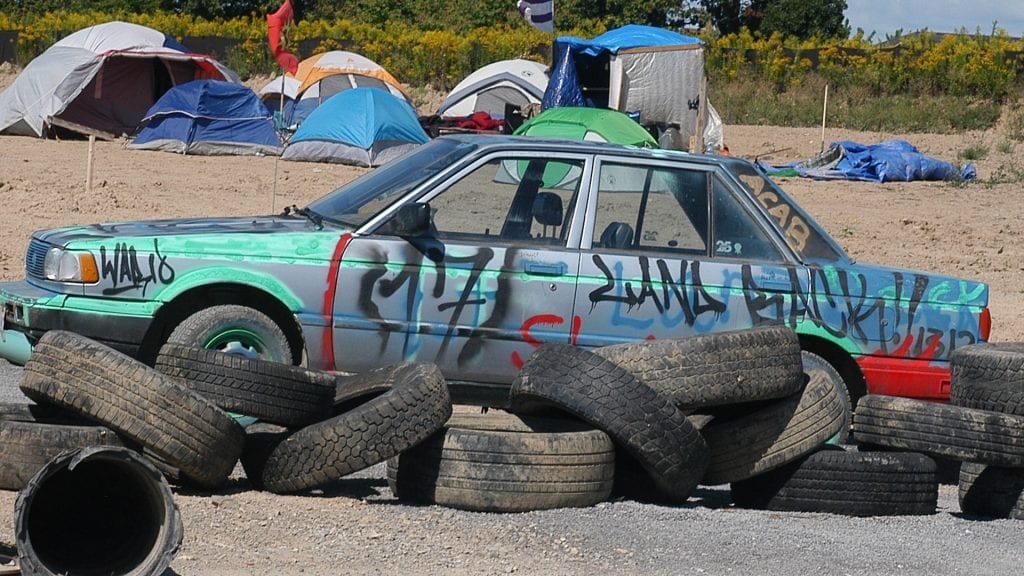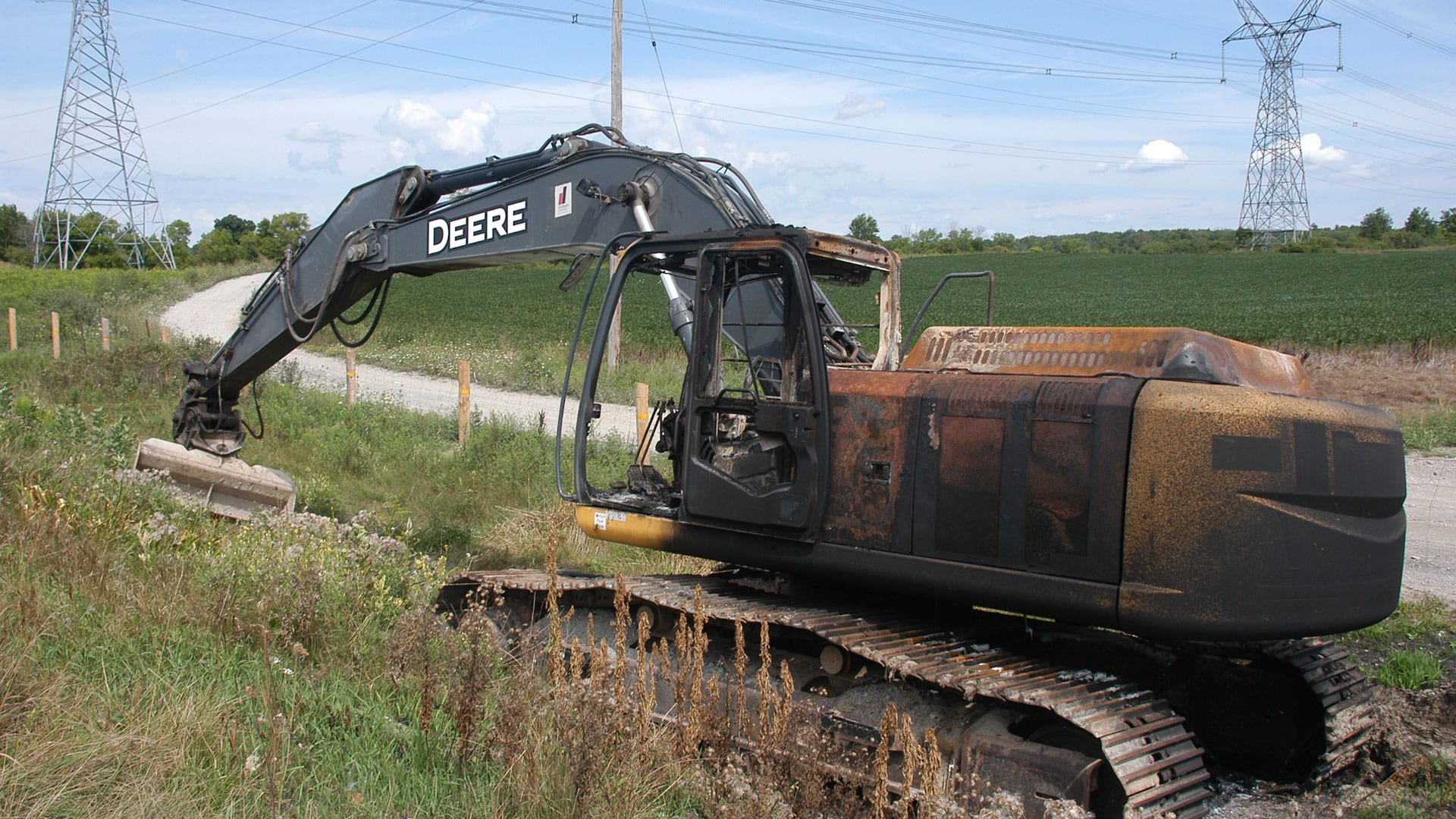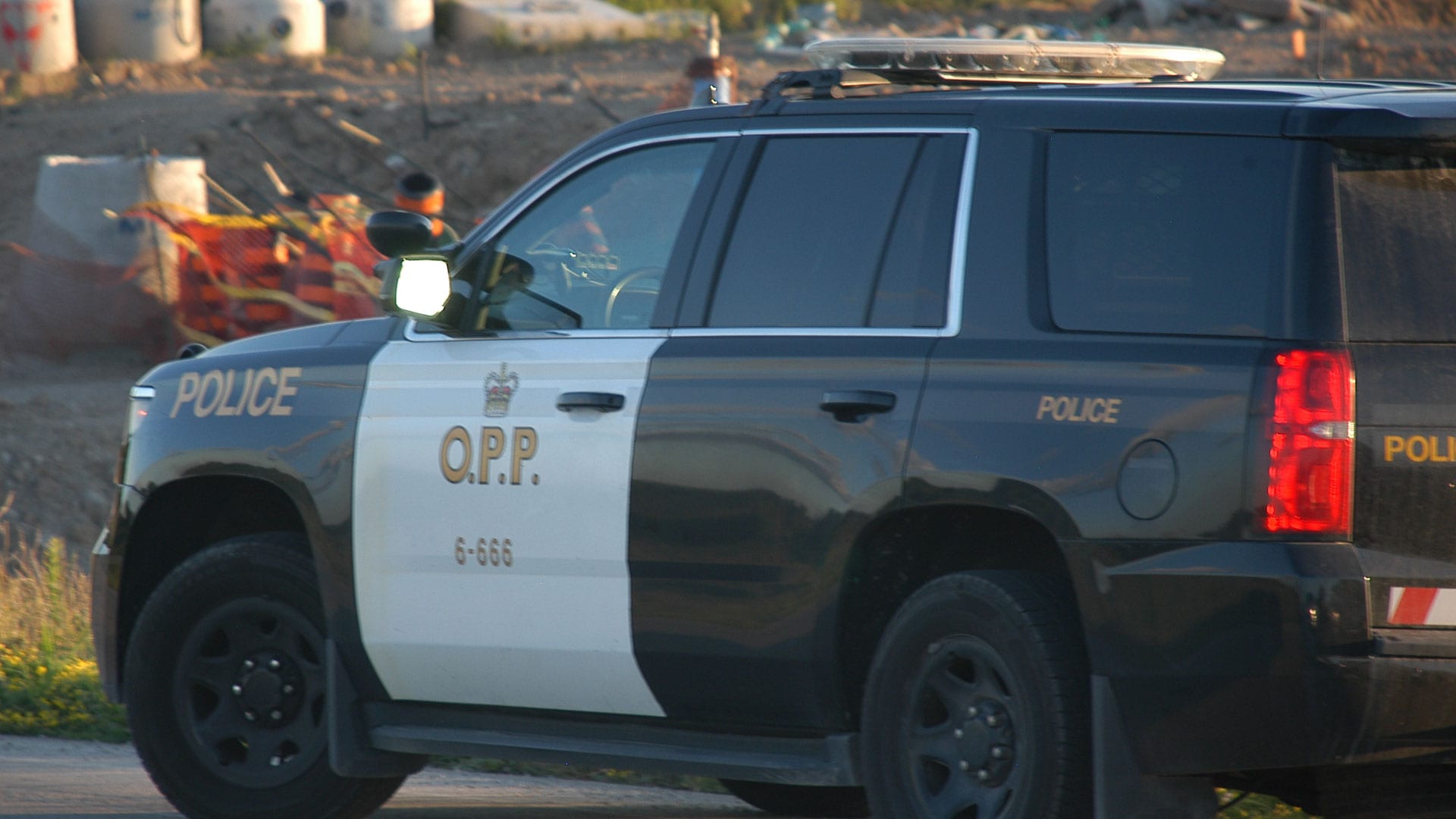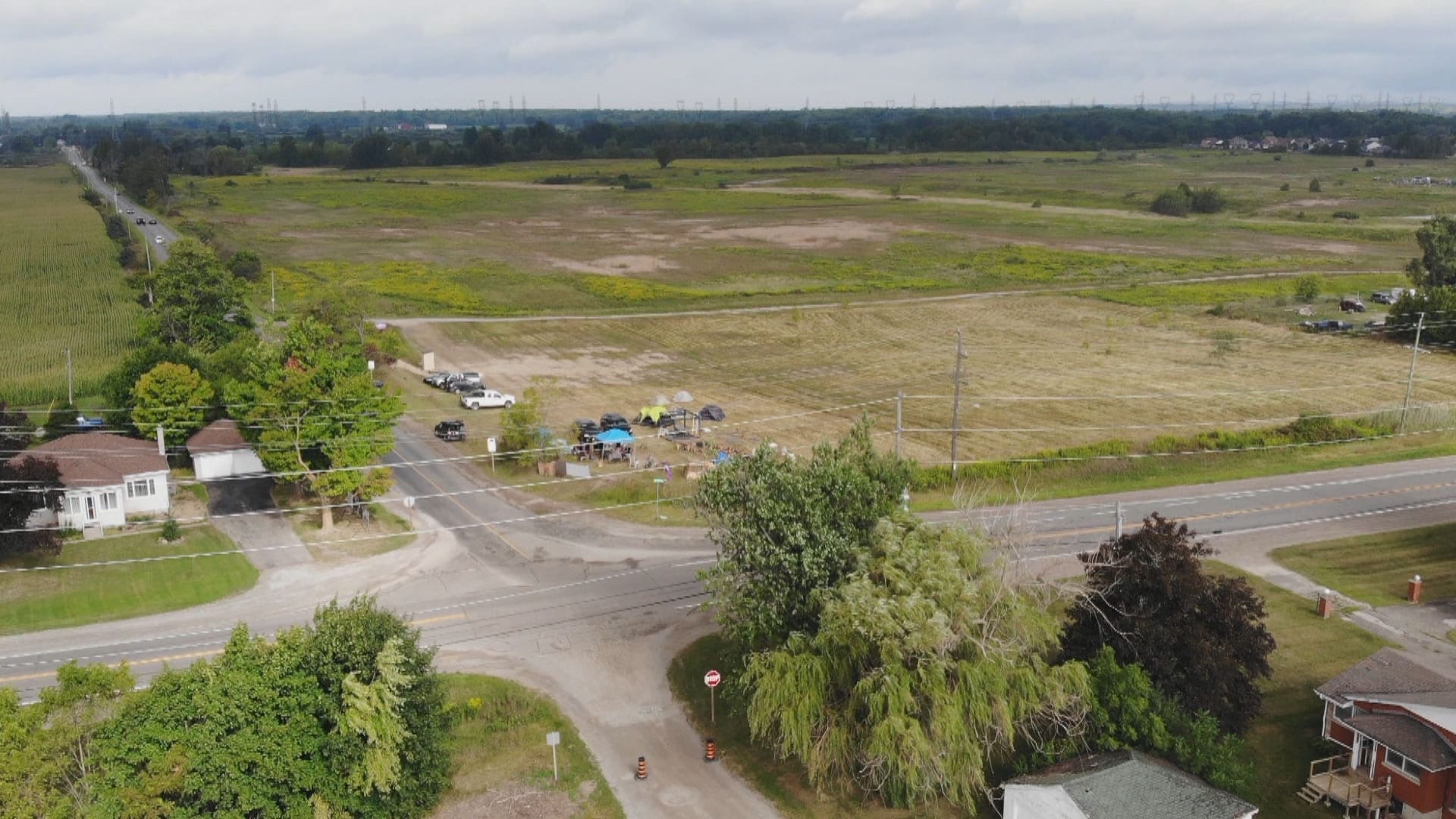
Talks were struck in 2006 during the dispute over Douglas Creek Estates, but a resolution was never reached. Photo: Brett Forester/APTN
The federal government offered to meet with the Six Nations of the Grand River to resume long-dormant negotiations over “longstanding and unresolved land issues” two days before road barricades in Caledonia, Ont. were largely dismantled, according to a letter sent by ministers Carolyn Bennett and Marc Miller and obtained by APTN News.
The letter is dated Aug. 19 and was contained in court documents filed ahead of Friday’s injunction hearing. It’s addressed to elected Chief Mark Hill, the Haudenosaunee Confederacy Chiefs Council (HCCC) and had a carbon copy to Ontario Indigenous Affairs Minister Greg Rickford.
“We would like to work with you and the Province Ontario to collaboratively design a process to address the unresolved land issues, and to also better understand the interests and priorities of your community and how Canada can support your vision and aspirations for self-determination,” Miller and Bennett said.
“We are prepared to commit to an in-person dialogue at the earliest possible opportunity and look forward to sitting down with you as soon as possible.”
Six Nations members lit multiple fires, halted trains and erected blockades after the Ontario Provincial Police (OPP) raided the 1492 Land Back Lane occupation camp that’s halting construction on the McKenzie Meadows subdivision in Caledonia.

“It appears as though we have struck the right cord (sic),” said spokesperson for the action Skyler Williams on Aug. 19. “We’ve got a table. Now to keep the ball rolling.”
But few details were available to the developers or the public about what that table was or who would be there.
Counsel for Foxgate Developments, the company that holds the injunction barring anyone from occupying the site without permission, sent a letter of their own urging the ministers to reconsider.
“The actual letter from your office has not been posted and since we have been unable to obtain a copy of same we are unsure specifically to whom the letter may or may not have been sent and what the contents of same may say with regards to our client’s lands or the continued occupation,” Kagan Shastri lawyer Paul DeMelo wrote on Sept. 17.
The detailed letter explains Foxgate’s position and recounts much of the evidence submitted in the injunction hearings. DeMelo said the company asked the ministers how talks might impact the occupied parcel but didn’t get a response.
“As such we request confirmation from your offices that so long as the occupiers continue to defy the Court orders and continue to interfere illegally with our client’s development and the rights of those who have purchased homes that no discussions or negotiations will proceed,” the letter said.
DeMelo suggested that the lack of engagement snubbed both the developer’s rights and Ontario’s legal authority.
“To not even be contacted or have anyone reach out to them is an afront (sic) to not only our client but to the legal system that has been established in the Province and calls into question how anyone can rely on that system.”
Rickford was cc’d again along with Haldimand County’s mayor and lawyer.
Email to OPP about road work, concerts
Along with the letters, Williams and Foxgate submitted several other documents as exhibits in advance of the Oct. 9 hearing.
On Sept. 24, the chief legal officer at Losani Homes, one of the companies that owns Foxgate, discussed a failed effort to locate municipal services on the road adjacent to the site.
“I am advised that when we reported to the OPP officer that we were denied access, the officer suggested we speak to the protestors, however Skyler Williams brandished a lacrosse stick for the ‘meeting at the road’,” said William Liske in an email to DeMelo.
“I don’t believe that it is acceptable that the claimants deny access to the County’s road allowance, that they do so with weapons in hand, or that in the face of the injunctions, the OPP simply allow this to play out without intervention,” continued Liske.
DeMelo forwarded these concerns to Christopher Diana, a provincial government lawyer who represented the OPP commissioner in court on Aug. 25.

He also raised concerns about the concerts, styled as “Six Nations Unity Jam Sessions,” and lacrosse games held every Saturday at the camp.
“I understand that the OPP has spoken to those who had performed on the site in these sessions in the past and that they were advised of the potential for charges to be laid,” DeMelo told Diana on Sept. 24.
“It is our expectation that the OPP will not allow these activities to continue or to allow others to enter onto the lands without permission of the owner in violation of the Court Order.”
The next day, the OPP publicly discouraged supporters from attending.
“OPP is warning those who plan to attend the McKenzie Meadows site that they are subject to applicable charges,” police said. “OPP continue to obtain evidence and information during this ongoing investigation.”
Nevertheless, the bands played as scheduled. Charges have not been laid thus far against the performers, which included Six Nations members and musicians Derek Miller and Logan Staats.
Resolving the Grand River land dispute
APTN contacted Rickford’s office with a request for comment but did not receive a response by deadline.
Bennett’s office did not say what their response was to Foxgate’s correspondence or confirm it was received. A statement to APTN affirmed that Ottawa is still ready to meet with the community.
“Canada deeply values its relationship with Six Nations and is committed to continuing to work collaboratively to address Six Nations’ historical claims and land right issues,” said press secretary Emily Williams. “We are actively working with the community and look forward to meeting at the earliest opportunity.”
In 1784, the Haldimand Proclamation granted the Six Nations a 950,000-acre tract “to take possession of and settle upon” along the banks of the Grand River that “them and their posterity are to enjoy forever.”
But the nations were dispossessed of over 90 per cent of that land through transactions or surrenders whose legality the community disputes. The present 46,500-acre reserve is the largest in the country in terms of membership but a fraction of the original tract.
They submitted 29 land claims to the government between 1980 and 1995 as a result of land dealings along the Grand River. Only one was resolved.

The government of Canada closed the other claims in 1995, including those already validated for negotiation, after receiving a notice of pending litigation.
That lawsuit was launched in 1995 and represents an accounting claim for cash, land and assets allegedly owed to the Six Nations by the Crown.
According to the elected council, it was openly litigated until 2004 then paused to undertake “exploratory” talks with Ottawa geared toward negotiated settlement. Elected council never pursued the talks, however, due to the 2006 conflict over a proposed subdivision known as Douglas Creek Estates.
Ontario purchased the disputed parcel, known now as Kanonhstaton in Mohawk, from the developer and put it in trust until the parties could negotiate a solution.
Those talks included the traditional Confederacy chiefs and continued until 2009 when litigation resumed.
At the time, Ottawa maintained it was committed to a negotiated settlement, but the Confederacy leaders say the Harper Tories “simply walked away” from the table.
The discovery process already produced over 31,000 documents and a trial is slated for October 2022.
Police said Thursday that they’ve charged 27 people in connection to the McKenzie Meadows occupation and solidarity blockade actions.
Ontario Superior Court of Justice will rule on the injunctions Friday in Cayuga.
Protests and demonstrations are slated in multiple different cities to coincide with the hearing.










